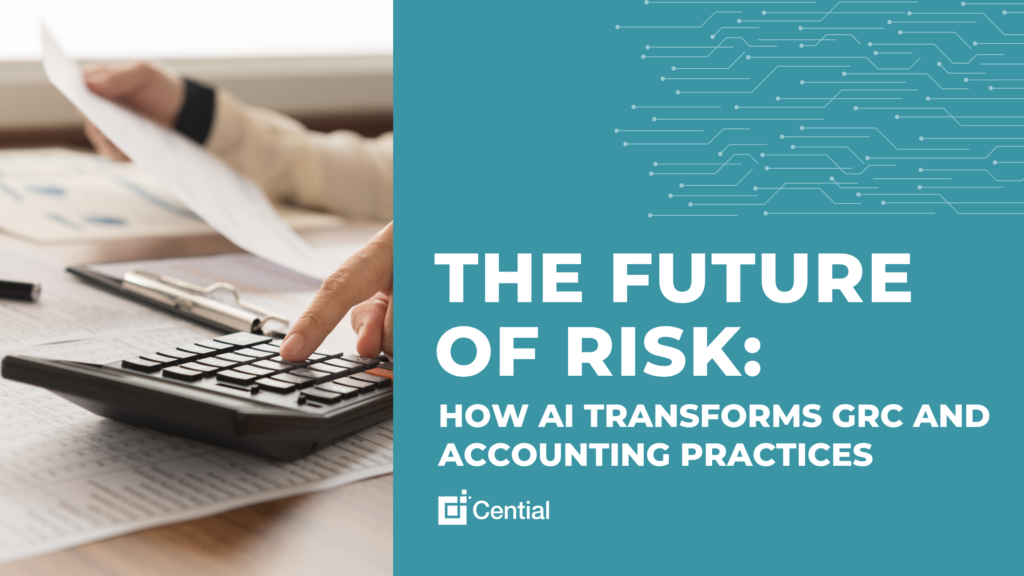
Cential Consulting recently had the opportunity to join a Chartered Accountants Worldwide (CAW) Network USA event to discuss the significance of integrating AI into our world and work, and evaluate its risks and benefits.
As accounting and risk management are closely related, we were able to zero in on these quandaries and really delve into the implications and functions of this new technology—and the cost of sitting back instead of adapting.
Cential partners Andrew Gunter and Jannie Wentzel were able to share their observations and expertise in implementing new technology like artificial intelligence. The normalization of even casual use of AI may be new, but the introduction of new technologies that risk, compliance, and accounting professionals continue to be required to adapt to is certainly not a new concept.
After years of advancements, the World Economic Forum (WEF) deemed this time as the Fourth Industrial Revolution in 2015. They outlined a series of twenty-one “tipping points” that they expected to occur by 2025 which will push us into the next era. Most of them, like “1 trillion devices connected to the internet,” and “80% of people with a digital presence on the internet” are nothing that the average connected and aware person would bat an eye at.
However, as Andrew and Jannie highlighted in their presentation, we want to focus on the sixth tipping point listed by the WEF: 30% of corporate audits will be performed by AI.
AI’s Role In Corporate Audits
Of the nine tipping points, the most specific, relevant callout was that AI would be leveraged in audits. AI technology wouldn’t be the sole entity performing audits, but it would be leveraged in them by 2025—and we’ve already seen the numbers of this growing. With the rate at which we can see our culture reaching all of the tipping points, we can expect to see this practice popularized and become common practice sooner rather than later.
The decision is now on risk and accounting professionals to decide whether we’re going to continue our current practices or adapt to the tangible changes happening around us.
At Cential, we believe that—as with any occupation or role, whether it be writing, software engineering, accounting, or risk management—AI is not meant to be a replacement for the person actually doing the work. It’s a tool, and an incredibly useful one at that. In their presentation at the CAW event, Andrew and Jannie took a few minutes to demo how you can implement AI in generating a risk statement. And the process really does only take a couple of minutes—to watch Andrew and Jannie’s demo, CAW highlighted it and posted a clip in one of their recent blogs.
There are certainly moral and ethical quandaries posed to our society related to AI and how rampantly we allow it to overtake our processes and take precedence over people. Jannie and Andrew discussed the tech companies’ arms race for who can produce the best models so they can corner the market and essentially be the future of technology and AI as we enter this new era predicted by the WEF. It’s important to acknowledge that there are right and wrong ways to go about utilizing AI technology, but approaching the implementation of AI with a measured and moderate strategy is how we keep abreast with advancements while maintaining integrity.
To learn more and access the whole recorded webinar, visit the CAW website and join the conversation on Linkedin.
